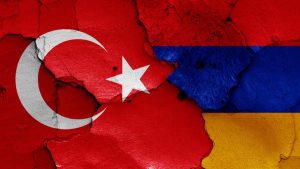
Staff Writer
In December, both Turkey and Armenia, nominated envoys to begin peace negotiations, aimed at normalising ties between the two countries. Relations had been fraught for decades, owing to Armenian claims over Turkish territory and Yerevan’s accusations that Turkey had committed genocide against Armenians during the first World War. Armenia’s annexation of Nagorno-Karabakh in the early 1990s added to these tensions, since Azerbaijan, which Nagorno-Karabakh is internationally recognised as being part of, is a close Turkish ally. In 2020, Azerbaijan, supported by Turkey, regained much of these territories following a conflict, which was largely started by Armenian supported separatists.
Speaking to Radio Islam, Motasem Daloull, a journalist with the Middle East Monitor, noted that Turkish-Armenian relations were amicable prior to World War I, and that relations worsened after Armenians carried out attacks within Turkey during the war, after which Turkey responded, “Before modern Turkey, there had been no animosity between the Armenians and the Turkish, because during the Ottoman empire, all the nations were treated equally by the Ottomans, whether they were Muslims or non-Muslims… but during World War I a minority of Armenians carried out attacks inside Turkey, which the Turkish Army cracked down on.”
Daloull also argued, that according to his research, there was no Armenian genocide, and similar to the case of Arabs, this is driven by the elite, with their own objectives.
In relation to the current talks, he argued that there was a chance at success, but people need to be weary, especially around the roles played by Russia and the UN, which he asserted are seeking to stunt any real Muslim government and governance. He cited the 2009 talks, and the successes and failures thereof, arguing that the ruling Turkish AKP is seeking to revitalise the Ottoman empire, and that peace amongst nations and ethnic groups previously constituting the empire, was a large part of this cooperation.







0 Comments